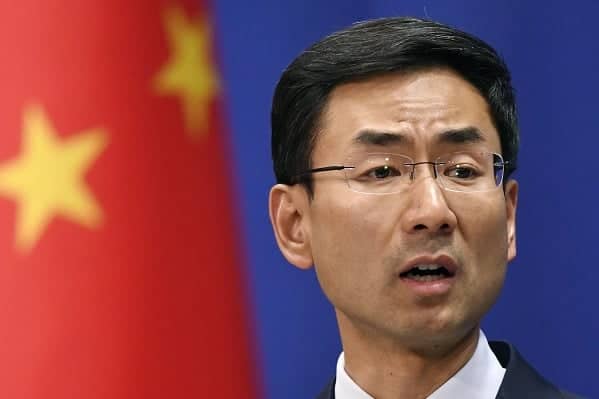The National Cyber Security Centre, part of GCHQ has revealed that Chinese state hackers are responsible for malicious digital campaigns targeting politicians.
China has been held responsible for a cyber attack on the Electoral Commission whereby they have obtained details of 40 million voters.
It is believed that two individuals along with a front company are linked to a Chinese sponsored cyber group APT31.
The Deputy Prime Minister Oliver Dowden told MPs on Monday that Beijing are attempting to interfere with British politics and democracy, but to no avail.
Dowden told MPs in the House of Commons, “The UK will not tolerate malicious cyber-activity targeting our democratic institutions.
“It is an absolute priority for the UK government to protect our democratic system and values.
“I hope this statement helps to build wider awareness of how politicians and those involved in our democratic processes around the world are being targeted by state-sponsored cyber-operations.
“We will continue to call out this activity, holding the Chinese government accountable for its actions.”
The Foreign Secretary, Lord David Cameron, raised cyber-attacks on Britain’s democratic institutions saying it is “completely unacceptable” of China.
Lord Cameron said, “It is completely unacceptable that China state-affiliated organisations and individuals have targeted our democratic institutions and political processes.
“While these attempts to interfere with UK democracy have not been successful, we will remain vigilant and resilient to the threats we face.
“We will always defend ourselves from those who seek to threaten the freedoms that underpin our values and democracy.
“One of the reasons that it is important to make this statement is that other countries should see the detail of threats that our systems and democracies face.”
Al Lakhani, CEO of IDEE, said, “International relations are built on good faith, mutual interests and a fair bit of give and take. But these are all completely opposed to good cybersecurity practices, which must be built on zero trust.
“The Government is blatantly tiptoeing around the issue, evidently paralysed by the fear of alienating global superpowers, but the result is compromised personal data and undermining confidence in electoral processes.
“To avoid these awkward situations, the Government needs to find better ways of protecting its systems and data. When it comes to something as important as national security, relying on outdated cybersecurity solutions that detect attacks, but stop short of preventing them, is nothing short of dangerous.
“A general election is on the horizon, and the threat of international interference is huge. So, I hope that lessons have been learnt from past breaches, that this marks a turning point in the UK’s cyber security preparedness, and that we move towards a digitally-secure future rooted in identity proofing and transitive trust.”






Leave a Comment